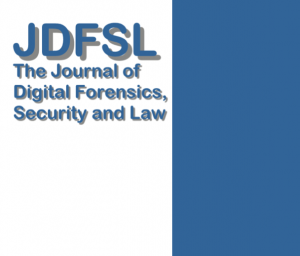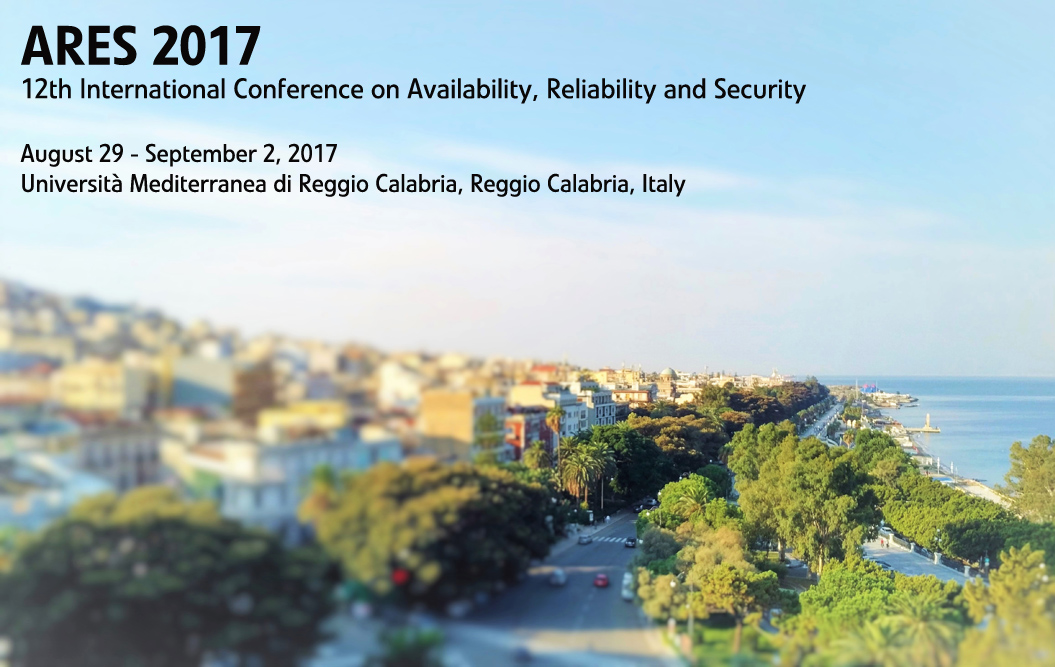The 9th International Workshop on Digital Forensics
to be held in conjunction with the 11th International Conference on Availability, Reliability and Security
(ARES 2016 – http://www.ares-conference.eu)
August 31 – September 2, 2016
Salzburg, Austria
Digital forensics is a rapidly evolving field primarily focused on the extraction, preservation and analysis of digital evidence obtained from electronic devices in a manner that is legally acceptable. Research into new methodologies tools and techniques within this domain is necessitated by an ever-increasing dependency on tightly interconnected, complex and pervasive computer systems and networks. The ubiquitous nature of our digital lifestyle presents many avenues for the potential misuse of electronic devices in crimes that directly involve, or are facilitated by, these technologies. The aim of digital forensics is to produce outputs that can help investigators ascertain the overall state of a system. This includes any events that have occurred within the system and entities that have interacted with that system. Due care has to be taken in the identification, collection, archiving, maintenance, handling and analysis of digital evidence in order to prevent damage to data integrity. Such issues combined with the constant evolution of technology provide a large scope of digital forensic research. WSDF aims to bring together experts from academia, industry, government and law enforcement who are interested in advancing the state of the art in digital forensics by exchanging their knowledge, results, ideas and experiences.
The aim of the workshop is to provide a relaxed atmosphere that promotes discussion and free exchange of ideas while providing a sound academic backing. The focus of this workshop is not only restricted to digital forensics in the investigation of crime. It also addresses security applications such as automated log analysis, forensic aspects of fraud prevention and investigation, policy and governance.
Topics of interest comprise but are not limited to:
| Digital Evidence Extraction and Analysis Network Forensics Anti-Forensics Techniques Physical Memory Acquisition and Analysis Digital Forensic Information Visualisation Fraud Investigations Involving Technology Portable Devices Cyber Terrorism and Warfare Log Analysis Incident Response and Management Investigative Case Studies |
Malware Analysis Novel Data Recovery Techniques Cyber Criminal Profiling Big Data in Digital Forensics Cyber Crime investigation Triage Cloud Forensics Mobile Forensics Investigative Methodologies and Procedures Internet of Things (IoT) Forensics Emerging challenges in Digital Forensics eDiscovery |
Important Dates
| Submission Deadline | May 12, 2016 |
| Author Notification | June 03, 2016 |
| Proceedings Version | June 20, 2016 |
| Conference | August 31 – September 2, 2016 |
Workshop Chairs
Richard Overill
King’s College London, UK
richard.overill[at]kcl.ac.uk
Virginia N. L. Franqueira
University of Derby, UK
v.franqueira[at]derby.ac.uk
Andrew Marrington
Zayed University, UAE
andrew.marrington[at]zu.ac.ae
Andrew Jones
University of Hertfordshire, UK
a.jones26[at]herts.ac.uk
Program Committee
Olga Angelopoulou, University of Hertfordshire, UK
Aswami Ariffin, CyberSecurity Malaysia, Malaysia
Frank Breitinger, University of New Haven, USA
Ibrahim Baggili, University of New Haven, USA
Joanne Bryce, University of Central Lancashire, UK
Clara Colombini, University of Milan, Italy
Aniello Costiglione, Università di Salerno, Italy
Kim-Kwang Raymond Choo, University of South Australia, Australia
Kam-Pui Chow, Hong Kong University, China
Antonio Colella, Italian Army, Italy
George Grispos, The Irish Software Research Centre (LERO), Ireland
Chris Hargreaves, HARGS, UK
Joshua James, Soon Chun Hyang University, Korea
Katharina Krombholz, SBA Research, Austria
Thomas Martin, Khalifa University, UAE
Vassil Roussev, University of New Orleans, USA
Mark Scanlon, University College Dublin, Ireland
Martin Schmiedecker, SBA Research, Austria
Timothy Storer, University of Glasgow, UK
Simon Tjoa, St. Pölten University of Applied Sciences, Austria
Stilianos Vidalis, University of Hertfordshire, UK
York Yannikos, Fraunhofer SIT, Germany
Yijun Yu, Open University, UK
Stefano Zanero, Politecnico di Milano, Italy
Submission
The proceedings of ARES (including workshops) have been published by Conference Publishing Services (CPS). The submission guidelines valid for the WSDF workshop are the same as for the ARES conference. They can be found >>here<<.
 Authors of selected papers accepted for WSDF will be invited to produce extended and updated versions of their papers (with at least 30% of new material) for review and publication in the Journal of Digital Forensics, Science and Law (JDFSL), http://www.jdfsl.org/, the official journal of the Association of Digital Forensics, Science and Law (ADFSL).
Authors of selected papers accepted for WSDF will be invited to produce extended and updated versions of their papers (with at least 30% of new material) for review and publication in the Journal of Digital Forensics, Science and Law (JDFSL), http://www.jdfsl.org/, the official journal of the Association of Digital Forensics, Science and Law (ADFSL).



